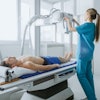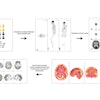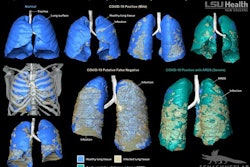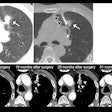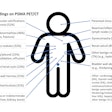Dear AuntMinnie Member,
Our U.S. readers are undoubtedly enjoying a long July 4 holiday this weekend, but there is still plenty of radiology news to keep things cooking!
To start, in our top story for the past week, researchers from Duke University used cardiac MRI to detect signs of myocarditis -- an inflammation of the heart muscle -- in people who received COVID-19 vaccines based on messenger RNA (mRNA) technology.
The findings parallel other research indicating that the vaccines can have effects on the body -- such as enlarged lymph nodes -- that are visible on imaging exams. But the Duke researchers were quick to point out that their findings applied to a small number of patients and shouldn't dissuade anyone from getting a COVID-19 vaccine.
PET for COVID-19
Research on COVID-19 as it pertains to PET imaging has also been top of mind in our Molecular Imaging Community. A group from the University of Southern California chronicled the performance of FDG-PET/CT in detecting infection and inflammation in COVID-19 patients, finding that the modality was useful in tracking the disease.
In neuroimaging, a multinational group found that PET with a radiotracer for tau detection was superior to MRI and PET amyloid imaging when it comes to detecting cognitive decline in people with Alzheimer's disease.
Visit our Molecular Imaging Community for more stories like these.
RADxx now RAD=
And in a sign of the times, the RAD Women (RADxx) networking group for women in imaging informatics is changing its name to RAD= (RAD Equal). Find out why in an article in our Enterprise Imaging Community.
